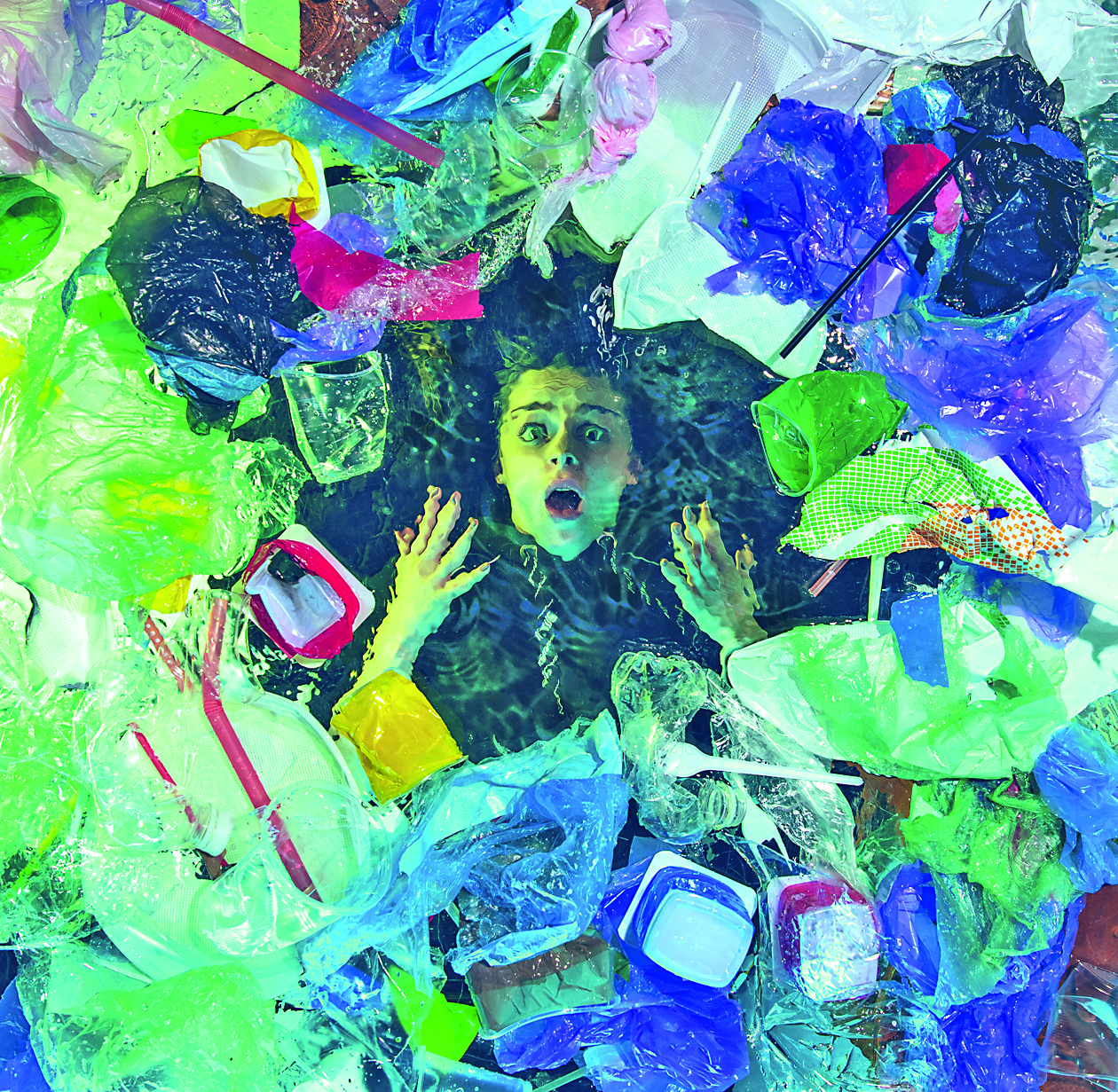Plastic Fasting
How to reduce your consumption of plastic

Despite efforts to separate waste, most plastic used daily, from pasta to shampoo, ends up incinerated or in landfills, with only a fraction recycled globally. Let’s try ‘plastic fasting’ — it’s the same concept as normal fasting, but instead of giving up sweets or alcohol, plastic is avoided. (Image Copyright: dpa)
Just 9% of global plastic is recycled, according to estimates, and even in countries where waste is sorted into recycling bins, the vast majority of plastics end up in landfills or incinerators. It can sometimes seem that everything you want to buy is either made of plastic, wrapped in plastic or contains some form of plastic — in short, it’s everywhere.
Plastics pollute and poison the environment and people with it, prompting many of us to try to reduce our dependence on them. The good news is that small changes in everyday life can make a big difference.
Plastic fasting follows the same concept as normal fasting, but instead of giving up sweets or alcohol, plastic is avoided, even if it’s just for a limited period of time.
“Plastic fasting means consciously avoiding the use of plastic products, especially short-lived things that end up in the bin after a short period of use,” says Silvia Cabrera-Cayola. She is an expert in waste and resource protection at a consumer advice centre in Germany.
By avoiding unnecessary plastic and trying to do without single-use plastic as far as possible, you can help to conserve resources, and protect your own health too.
It’s worth remembering that we also ingest plastic through our food and water — and not just in small quantities. “A study by the University of Newcastle (Australia) found that people ingest up to five grams of plastic a week,” says Thomas Fischer from the campaign group Environmental Action Germany (DUH). “That’s roughly equivalent to a shredded credit card.”
QHow can we do without plastic in practice?
The general rule is to avoid all unnecessary individual packaging. That will help you gradually save large amounts of disposable waste with every purchase. As an alternative to using shopping bags or thin fruit bags, get in the habit of bringing a cloth net for loose vegetables, a carrier bag, or a basket with you when you go shopping.
Water in disposable plastic bottles can easily be replaced reusable glass bottles.
QPlastic everywhere!
QHow can we do without plastic in practice?
The general rule is to avoid all unnecessary individual packaging. That will help you gradually save large amounts of disposable waste with every purchase. As an alternative to using shopping bags or thin fruit bags, get in the habit of bringing a cloth net for loose vegetables, a carrier bag, or a basket with you when you go shopping.
Water in disposable plastic bottles can easily be replaced reusable glass bottles.
QPlastic everywhere!
Clothing that contains synthetic fibres is not good from an environmental point of view, particularly sports and outdoor clothing, which is often plastic. Microscopic plastic particles get into the water during production and when these items are washed at home.
Look carefully at the contents of cosmetics and hygiene products, because they often contain plastics. “In products such as toothpaste, shower gel and cleaning products, solid microplastics are now banned throughout the EU,” says Thomas Fischer.
Microplastics can be found in shampoo, shower gel and scrubs, among other things. Manufacturers use plastic as an abrasive to whiten teeth. Detergents and cleaning agents can contain liquid or semi-solid plastic. The good news is that there are many plastic-free alternatives such as solid shampoo and shower gel, as well as sustainable cleaning products. Look out for labels telling you a product is plastic free.
Plastic fasting doesn’t mean throwing away everything made of plastic straight away. “You shouldn’t forget that it’s about reducing plastic and not about replacing it at all costs,” says Cabrera-Cayola. Items that are still in good condition can continue to be used until they are worn out or broken. “The aim should be to produce less waste in general, regardless of the material.”
Make it a rule to choose reusable instead of disposable, and try to buy durable and easily repairable products. You should also dispose of waste correctly at the recycling centre.
( Source : Deccan Chronicle )
Next Story

